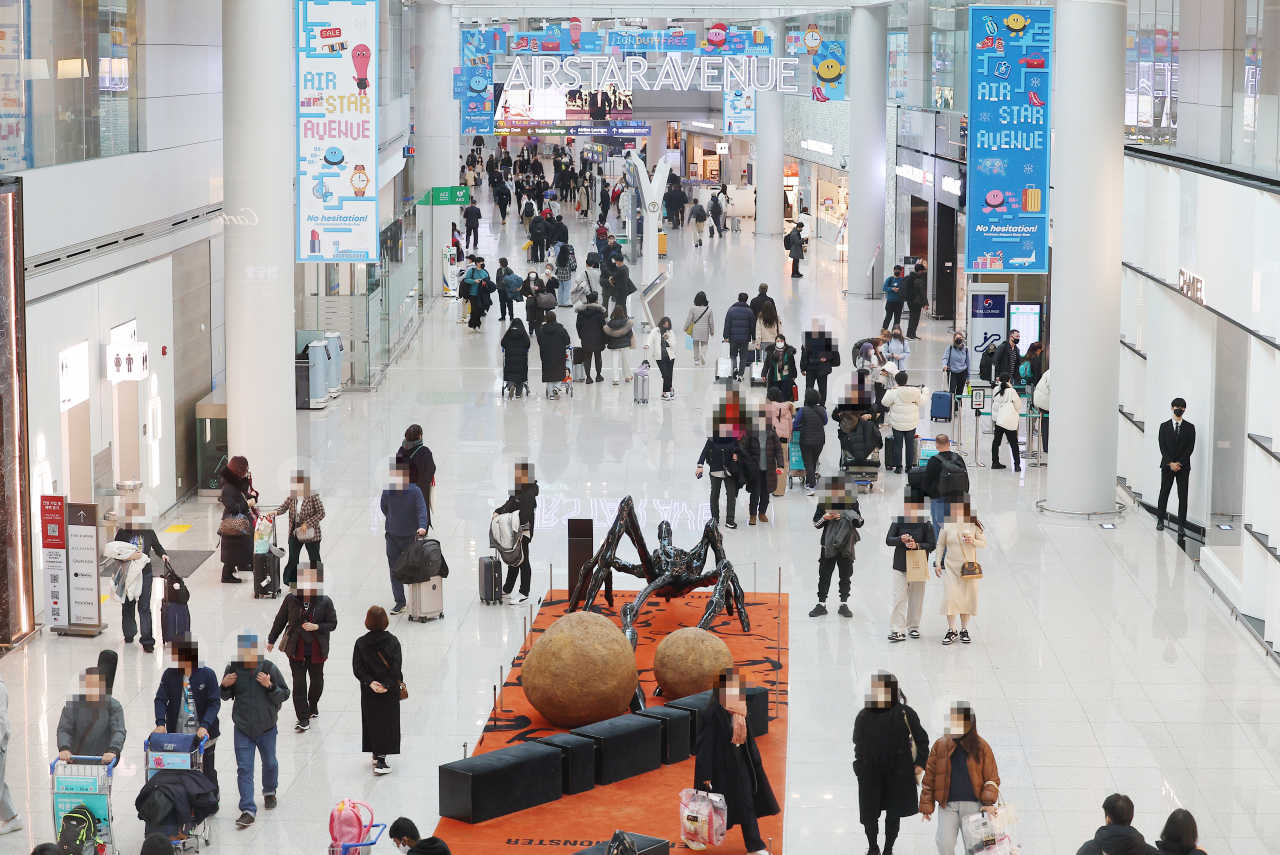Market Now
Duty-free industry pinning high hopes on China lifting 'zero-COVID' policy
 |
Tourists walk in the duty-free zone of Incheon International Airport Terminal 1 (Yonhap) |
With China abolishing measures to quarantine its travelers starting 2023, South Korean duty-free shops are expecting a boost in its earnings, according to industry sources Monday.
China's National Health Commission announced recently that starting Jan. 8, overseas entrants to China will no longer need to be quarantined or take PCR tests upon returning to the country.
This marks the first time in three years since the pandemic broke loose that Chinese tourists will be able to travel abroad without having to worry about a tough re-entry process to China.
Korean duty-free shops, whose key revenue sources depend on China's deep-pocketed tourists and resellers by more than 80 percent, are consequently expected to have a rosy year for their earnings.
In fact, a Korean brokerage Hana Securities predicted that out of Korean retailers, duty-free shops were expected to grow by the largest margin with a 10 percent growth rate in 2023 -- compared to convenience stores' 6.3 percent growth rate and 2.5 percent growth rate for department stores.
The prediction follows the increased number of travelers who visit Korean duty-free shops and the shops' consequently increased sales.
According to the Korea Duty Free Association, the cumulative number of domestic duty-free shop visitors from January to November 2022 recorded 9.6 million, 1.3 million of which were foreigners. Compared to the total number of foreign visitors (665,579) in 2021, the figure had increased by 95.8 percent.
Data showed that sales for duty-free shops have also almost recovered to pre-pandemic levels.
As of November 2022, duty-free shop sales made by foreign visitors amounted to 15.2 trillion won ($1.1 billion), which accounted for 80 percent of sales recorded for duty free shops in 2019, before the pandemic broke loose.
Experts say future sales for Korean duty-shops may increase even more with the return of Chinese bulk-buyers.
"Korean duty-free shops have been restructured in a way it relies largely on foreign bulk-buyers," said an official from the Korea Duty Free Shops Association.
"This restructuring is an effect of lengthened pandemic. Currently, almost 90 percent of duty-free shops' sales relies on foreign bulk-buying customers, and with China notorious for their resellers and bulk-buyers that travel in groups, their return may strengthen positive outlooks for Korean duty-free shops," he added.
However, with the Korean government’s COVID-19 response headquarters on Friday announcing that all travelers from China will face extra rules starting January including a mandatory COVID-19 test in Korea, after a record surge of infections in China, industry officials say immediate recovery is not to be expected.
"The initial few months after reopening the border may not yield a visible surge in duty-free shops sales, but after the infection rates stabilize, a noticeable increase in duty-free shops' sales may be observed," said an official from the Korea Duty Free Shops Association.
"The demand for flights from China is still so high that all seats are currently sold out," he added.
"Because (Chinese) demand has been suppressed, retaliatory consumption after the reopening of the border could take place."
By Lee Yoon-seo (yoonseo.3348@heraldcorp.com)








